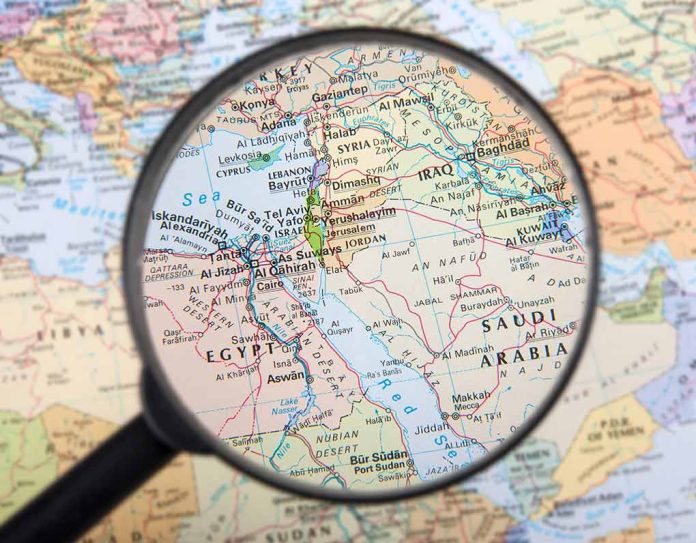
Brig. Gen. Amir Avivi calls for robust U.S. action against Iran as tensions escalate, predicting a possible third war involving Israel and Hezbollah.
At a Glance
- Potential third war between Israel and Hezbollah looms.
- IDF has shifted focus, redeploying forces from Gaza to the north.
- Iran, a central destabilizing force, was termed “head of the snake” by Avivi.
- Calls for stronger U.S. military initiative against Iran.
Growing Threat from Iran and Hezbollah
Signs indicate a rising threat of war between Israel and Hezbollah. Amid escalating tensions, the IDF has redeployed its key military unit, the 98th Division, from Gaza to the north, hinting at a potential ground invasion.
Brig. Gen. Amir Avivi has publicly stated that a northern conflict involving Hezbollah is imminent, emphasizing the urgent need for strategic military positioning and preparedness in anticipation of further aggression from Iranian-backed forces, specifically Hezbollah.
The Israeli military has intensified its operations against Hezbollah, with airstrikes targeting critical infrastructure in Lebanon. Recent incidents, including a claimed successful Mossad operation resulting in casualties among Hezbollah’s ranks, highlight the scale of the conflict brewing between these two fierce opponents. Israel’s strategy aims to degrade Hezbollah’s capabilities, though it remains a challenging theater of war requiring constant vigilance and strategic foresight.
Retired IDF Brig. Gen. Amir Avivi told ABC News that Israel’s upcoming strike on Iran will signal the “start of a war” expected to last “many months.”
— Open Source Intel (@Osint613) October 21, 2024
Military and Diplomatic Dynamics
Brig. Gen. Amir Avivi, during a recent interview, underscored the complexity of Middle Eastern geopolitics, labeling Iran as the pivotal destabilizing force in the region. Avivi calls on the international community, particularly U.S. leadership, to adopt a more assertive military stance against Iran, arguing that stringent measures are vital to counteract Iran’s provocative actions, including its support for Hezbollah and other militant factions across the region.
“A few weeks ago it was clear that, due to the fact that Israel had destroyed most of Hamas’ forces, Hamas does not pose a serious threat to Israel anymore. This was a moment to decide to change the strategy and move the center of gravity from the south to north.” – IDF Reserve Brig. Gen. Amir Avivi Source
While diplomatic solutions increasingly appear far-fetched, particularly in the absence of decisive international pressure, Avivi’s advocacy for a U.S.-led coalition echoes broader regional sentiments. He argues this approach would address not just threats from Iran but also the wider Middle Eastern nexus of terror that spans Lebanon, Syria, and Iraq.
Amir Avivi, a former senior Israeli military official who has advised Netanyahu on the war, told the Free Beacon that the prime minister feared a repeat of the final weeks of Barack Obama’s presidency, during which the United States abstained from a U.N. National Security Council…
— Eliana Johnson (@elianayjohnson) December 2, 2024
The Call for U.S. Leadership
Avivi insists on the necessity of American intervention, asserting that U.S. leadership is crucial to counter Iran’s expanding influence and its destabilizing proxy activities. His comments come as Israel continues to experience hostilities, with recent Hezbollah attacks resulting in Israeli casualties.
“What the administration is saying is basically it’s calling Israel to lose the war. Israel cannot lose the war. Israel cannot go back to a reality where Hamas can build itself back to tens of thousands of militants on our borders, threatening all the towns along the border and threatening all of Israel with rockets.” – Brig. Gen. Amir Avivi Source
As Israel strategizes its future moves, the role of a strong U.S. presence and support is paramount to ensure regional stability and prevent further escalation. Avivi’s call embodies the fears of many within the region who worry about Iran’s unchecked ambitions and the potential spillover of violence across borders, fundamentally altering the geopolitical landscape.






















